“It’s scary to never see your child back home.” Survivor stories

Families of detainees waiting outside the detention center in Minsk. August 2020. Credit: svaboda.org
The Human Rights Center "Viasna” and the World Organization Against Torture (OMCT) launched a campaign to document cases of torture, cruel, inhuman and degrading treatment of protesters on August 9-13, 2020. Some testimonies of people who survived torture and violence will be published on our website as evidence of crimes committed by security forces.
Alena told Viasna about what many Belarusian mothers went through when their children did not return home last summer. In August 2020, her 17-year-old son disappeared, he was searched for 5 days, and when found, she cried out in horror: Andrei had a glassy stare, like a zombie, he did not recognize his family and did not remember his name.
It happened on August 9. At lunchtime, my son and I went to the polling station, Andrei (not his real name) was not going there, was not politically motivated, I suggested that he voted. Then I went with my family out of town, and he went to ride his bike.
When we returned home at about 10 pm, the son was not there yet. I was surprised, because Andrei always called when he was late, never rode his bicycle for a long time, he is generally very calm, a home-bird, and then it was 5 hours since he’d left.
I called him on his mobile - out of reach. I was very scared then already. Sure, he might have been held somewhere, but I had a bad feeling. I called him all the time, again and again. Until the last moment, I hoped that my son would return home.
At night, I lay down to take a short nap. I leaped out of bed at 5 in the morning, and when I saw that Andrei was not there, it was clear that he would not return…
“Everyone was looking for their relatives that day. It was awful”
There was some agitation in the city, cars were honking, something was happening and it was related to the election. I already understood that something bad had happened.
We started looking for Andrei early in the morning. I went to the Frunzienski District Department of Internal Affairs to write a statement. All the doors were locked. There were these iron bars. There was a policeman with a machine gun in front of him, and a huge crowd of people. I had never seen anything like that before.
With a fight I made my way inside the building and waited for several hours to write a statement. I had to scream, swear and argue, because everyone had other things to do.
After a while, I was received by a woman investigator and she accepted my statement. She received a lot of calls, from the families too, because everyone was looking for their relatives that day. It was awful, a nightmare.
All my relatives joined the search. When the relatives came to Akrestsin Street, they saw people in black uniforms dispersing the crowd with truncheons, driving them away and arresting some. It took only a second for the police department to tell us that he was not on the lists. It seemed like they hadn’t really looked up.
We were ready to go to Žodzina. We tried searching wherever possible, at all levels, called different people, looked for any clue. We were told that a secret order had been received to keep our relatives in the dark. The internet had been disconnected. It was total chaos! We tried to extract at least some information in fragments. In Žodzina, a person we know was told:
“We don’t know where they are, maybe they have already been shot.”
“The only thing we could do was just pray”
It was a horrible day, I thought it would never end, the minutes lasted like hours. Terrible news kept coming, someone was caught, beaten, somewhere a police truck drove into the crowd.
I couldn’t sleep a wink the second night, either. The only thing we could do was just pray. The sharp pain turned dull. The next day I sank into some kind of semiconsciousness. Probably this saved me from insanity. It seemed like a nightmare and hoped I’d soon wake up. Everything seemed unreal.
I understood how people feel when their children are kidnapped, and my child was abducted by the authorities, and they did not give any information. It is inhuman.
When I came to the police, they talked to me like I was a homeless person. They were rude on the phone. They drove me away, threw me away like a dog.
I lived in this country for so many years, my mother and grandmother were born here - and suddenly in just one day, I saw that everything was different here. People were no longer treated like human beings.
There was hope only for the volunteers who were making their lists. And it turned out that a lot of people added my son to the search lists. And those lists got mixed up. Someone called me to say that they found my Andrei. I was so happy, and then it turned out that it were the search lists.
On the fourth day, we read on the internet that Andrei had been sentenced to 13 days. Now at least we knew he was alive. But in what condition, where he was - nothing was known. No matter how many people were asked, no one could find out.
On August 10, I filed a statement with the police department, and eight days later no one called me, they were not going to look for him. Then I filed a complaint with the prosecutor’s office.
“I couldn’t even listen to it then, couldn’t believe it. I immediately changed the topic”
On the fifth day, we found Andrei on the volunteers’ lists. He was in Sluck. I packed, took things for him and for myself, and went there. I thought I would be there until I could pick him up, I would climb over the fence, but I would not return without my son.
When I arrived, people were already coming towards the station, dirty, exhausted, without shoelaces. I asked everyone, showed them his picture:
“Do you know this boy?”
Many recognized him and said:
“Oh, yes, it’s Andrei. He’s very hungry, you feed him right away."
One guy said they would soon release a group that included Andrei. I ran and saw my baby. Skinny, gray. Thank God, he was alive. I was very scared, because they did maim people there. I ran up to him - and there was a nerve storm.
It turns out he was in Akrestsin Street for four days. He began to tell what he saw there: how they beat him terribly, dragged them half-dead back to the cells; open fractures, protruding bones, a severed limb. People were treated worse than cattle. I couldn’t even listen to it back then, couldn’t accept it, believe it, it was a shock. I immediately changed the topic.
I said:
“Son, we’ve been looking for you for so long, five days.”
“Five days?! I was only gone for two days!”
“No, five. And your cousin was looking for you and your uncle.”
He answered:
“Who is this?”
“What do you mean who?” I thought he was probably joking.
“I saw his eyes - like a zombie. They were glassy, not blinking. And I cried out in horror”
When we arrived, Andrei went into his room and he had a nervous breakdown. He jumped out of the apartment, barefoot, into the entrance hall. I didn’t understand at all what was going on, thought maybe he had run to check the mailbox.
I went downstairs and there he was - sitting on the steps, hands on his head, crying, tears flowing. I have never seen him in such a state, and I said:
“Son, what’s wrong?”
He was sobbing. I ran to get a tissue and when I came back he was sitting on the first floor, right on the floor, head in his hands, crying. I didn’t know what to do. I had never seen anything like this in my entire life.
I tried talking to him, but I couldn’t understand what he was saying, just moaning. I took me an hour to take him back home, as if he was a baby. I put him in the elevator like a doll. He entered the apartment and froze.
I said:
“Come to the room.”
He went in and stopped. When I saw his eyes, he was like a zombie - they were glassy, not blinking. And I cried out in horror. I started calling an ambulance right away.
The doctors arrived quickly, tried to bring him to consciousness. And he went into a stupor, forgot his name, forgot me, he had a partial memory loss.
It turned out that my son was in Akrestsin Street for four days. They were never given any food there, never given any water, either. And they didn’t allow them to sleep for a long time. And so he lost track of time.
The ambulance took him away. I stroked my son’s hair, but I did not immediately realize that he had some protrusion on his skull. It was a huge bruise. He was beaten on the head with a truncheon, he lost consciousness and lay down, but no one helped.
The doctors asked his son what his name was. He thought for a long time and then said:
“I guess it’s Sasha.”
We were immediately taken to the emergency care hospital, but on the way we turned around and went to the ninth hospital instead. They said there were no vacant beds there, since people were being brought from Akrestsin Street all the time. It was awful!
Andrei was examined. He had a concussion, a brain trauma, a blow to the back of the head, a purple hematoma on his leg, and marks left by the truncheons all over his body. Hypothermia of the kidneys caused pyelonephritis, because they were put on the ground, and they lay like that all night long.
My son had an adjustment disorder - a reaction to severe stress. They called a psychotherapist. But they could not leave him in hospital: no vacant beds, a huge flow of people. So we returned home.
“There were people screaming that they needed insulin. It was a cry into the void”
For some reason I thought: the night will pass, and the next morning my son will be just like he used to be. But he was in a strange state, a kind of childhood. He looked at me like I was some strange lady, as if seeing me for the first time.
He wouldn’t want to go to bed, slept on the floor, in clothes. He said, “I’m used to it.” And he was very hungry, constantly eating and watching cartoons.
The next day nothing changed: “Eat, I’m hungry.” We carried food, and he lay on the floor, watching cartoons, periodically falling asleep, waking up again: “Eat, cartoons.”
We went to a psychiatric hospital. He was there for 10 days. There was an improvement, he could remember his name, some other things, but still could not remember all of our relatives. He didn’t remember all the days he spent in Akrestsin Street, either. For him, everything was condensed in two days.
We went to a lawyer, wrote a statement, but I did not file it. It was clear that this government would not investigate anything.
It turned out that my son was riding his bike on Niamiha Street, at around 8 pm, people were walking from work to the metro station, there were no rallies. Suddenly a minibus stopped, and security officers jumped out. Andrei didn’t even run away, he was just riding and didn't understand that he could be caught just like that.
Passers-by were dragged into the minibus and beaten with truncheons. My son had no symbols, he did not shout any slogans, he was just riding his bike. He was also dragged into the bus without any explanation.
Then they put him in a police bus. They stuffed a lot of people inside and drove him here and there for a long time. They unloaded in Akrestsin Street and beat them with truncheons as they got off: there was a row of officers and they beat everyone. My son said he was hit on the head and lost consciousness.
He came round and saw that everyone was lying on a concrete floor, and it lasted until next morning. Andrei says that although it was summer, it was very cold. He caught a cold. He had a concussion and was vomiting.
Then they were rushed to the cells. And all these days they did not allow them to sleep: you either sit or stand. And there was some movement all the time: some were pulled out, others were dragged in, beaten. He says the people there were just on the verge of life and death. No one helped, none called an ambulance or doctors.
There were people shouting that they needed insulin. It was a cry into the void. All these four days, there were wild shrill screams. That’s what hell is like.
“I cried out loud that God saw what they were doing and that it would not go unpunished”
My son did not know what time or what day it was. Then he was taken to an office (on August 11) and told to sign some papers. He did not even understand that it was a trial (Kastryčnicki District Court). He does not remember who the judge was: a woman or a man. Andrei was already in such a state of severe stress that he did not even understand what was happening.
The most interesting thing is that the police report said that Andrei was arrested at 11 pm in Victory Square. He was allegedly standing on the curb, without a bicycle, and shouting: “Resign!” The witnesses were two policemen registered in a police dormitory. Everything was so trumped up there!
Andrei was given 13 days, and on the fifth day, already in Sluck, they were all released.
When my son was in the hospital and I went to Akrestsin Street to pick up his things (there was no inventory). There were piles of stuff. Volunteers did a great job. They sorted out the things: backpacks, glasses, belts.
I went down to the basement to get the bike, and then a man in a black uniform approached me. He started insulting me with dirty words and said that I would not take the bike. I asked him to give his name. He replied that he was the prison warden (maybe he just lied) and told a guard:
“Come on, grab her! You’re arrested!”
And then he began to grab my hands, twist them. I cried out loud that God saw what they were doing and that it would not go unpunished, with all the people cursing them. And I already pictured being grabbed and dragged into these cells. There were cases when those who came for things were arrested. He released me, but told the guard to out down my passport details:
“Where do you work? You don’t work there anymore! You’re done!”
He was following me, and I was afraid he would hit me on the back of the head and knock me out. Then I took my son’s things, and as I was going out, he looked at me with such hatred. I was shocked: what did I do to him, why is it so, how is that possible?
“What’s going on is so scary, I can’t even feel safe at home”
My son was depressed for a long time. Completely closed, asocial. We took him to doctors, psychologists. One well-known psychotherapist who works with victims said:
“He’s so bad he’s not even ready to work with a psychologist.”
When we picked him from the hospital, they didn't want to discharge him, but Andrei asked the chief physician and insisted.
After we passed the forensic examination, documented the injuries, they started calling us from the Investigative Committee, pressuring me to have my son come for interrogation. I explained that he was in serious condition. The investigator said:
“I will decide in what condition he is.”
They promised to drag him, threatened me, pressured me all the time, forcing me to bring my son for interrogation. Then they left us alone.
I wanted the baby to just recover. We were told it would be a long process.
Then my son went to a rally. The psychologist explained it as follows: the person was in pain and he was trying to return to this state again to stop being afraid.
There was a strong dispersal in Arlouskaja Street, They fired rubber bullets and threw stun grenades, and the demonstrators were trapped. And Andrei got into this mess. He was beaten during arrest, hit in the face with a truncheon, and his glasses were pressed into the bridge of his nose (we did not find them later). They kicked him in the kidney, and there was a bruise there. His legs were damaged. He was miraculously released from the police department.
Psychotherapists offered him re-hospitalization, but Andrei refused. He was reserved, sitting in his room, often sleeping on the floor. He has severe drowsiness. He was thin before, but after Akrestsin Street he turned into a skeleton, now he eats all the time. Eats and sleeps. He wouldn’t talk to anyone. And there are gaps in his memory.
I asked a psychologist how to influence my son. She said to leave him alone for a while. It’s a long process: physical injuries, bruises would have passed, but his mind… The psychologist says that this is the way his brain protects itself.
A lot of people helped us, thank them all for their help. They offered treatment in another country, a sanatorium, but my son’s condition did not allow him to go.
I still can neither relax or have a sign of relief. What is happening is so scary, even at home I cannot feel safe. I live for the day - and I don’t know what will happen tomorrow.
More stories of people who survived police violence and torture:

“He tore my clothes, beat and insulted me.” Survivor stories
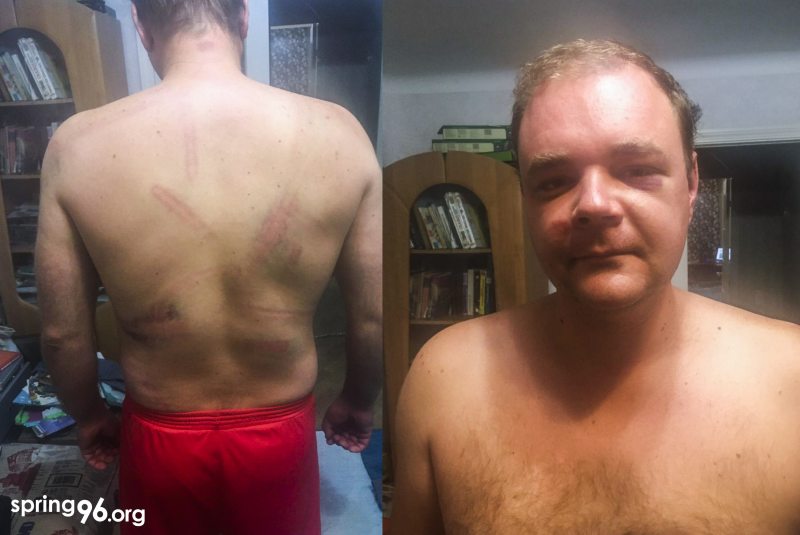
"They broke my nose and car because I had a white ribbon." Survivor stories
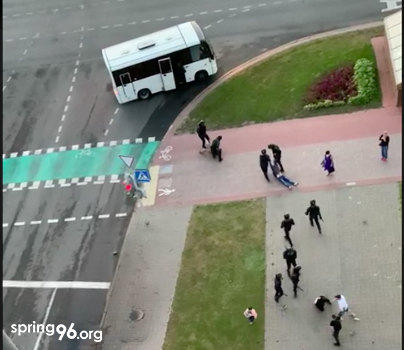
Violent protest dispersion resulted in a broken arm and a night at the detention center. Survivor stories
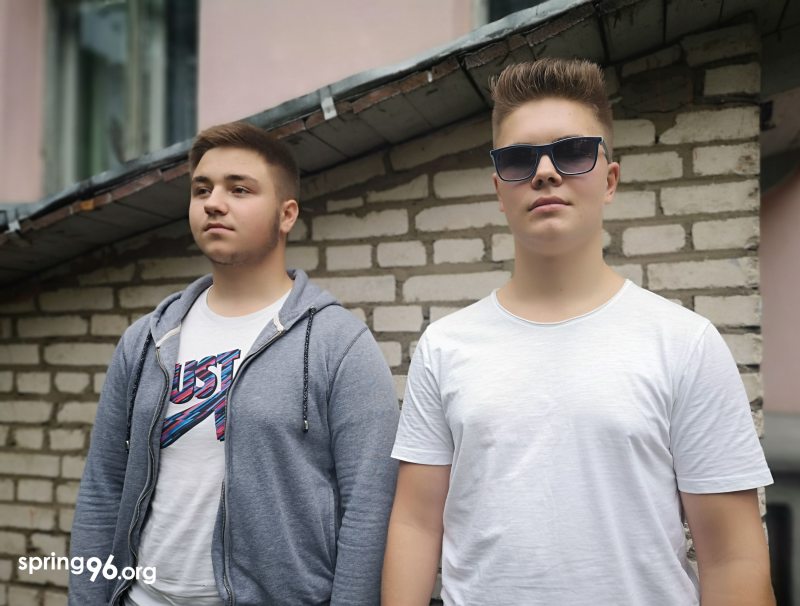
"We felt like we were chickens brought to a cage with tigers." Survivor stories
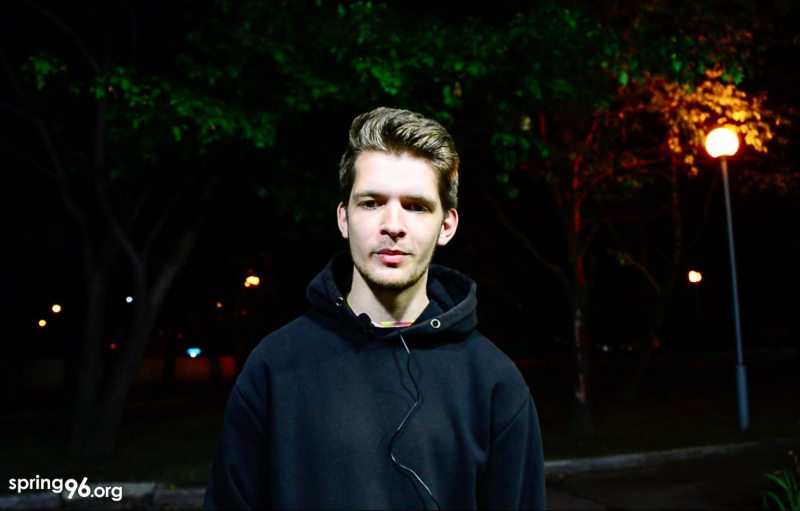
"Let's take him to the police van, let the guys have fun." Survivor stories
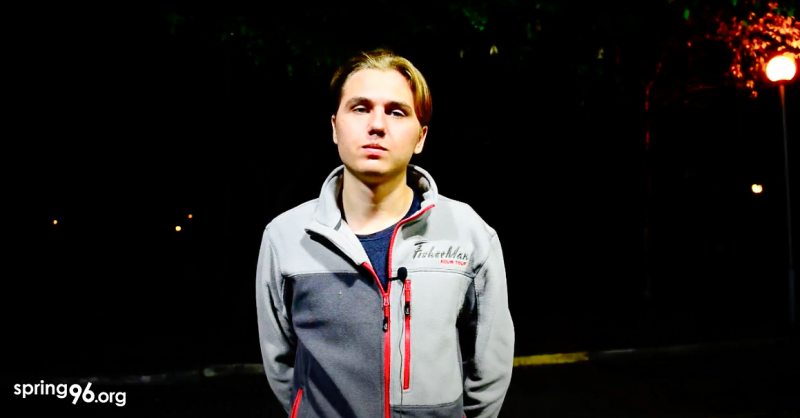
"We brought you to the execution, guys." Survivor stories
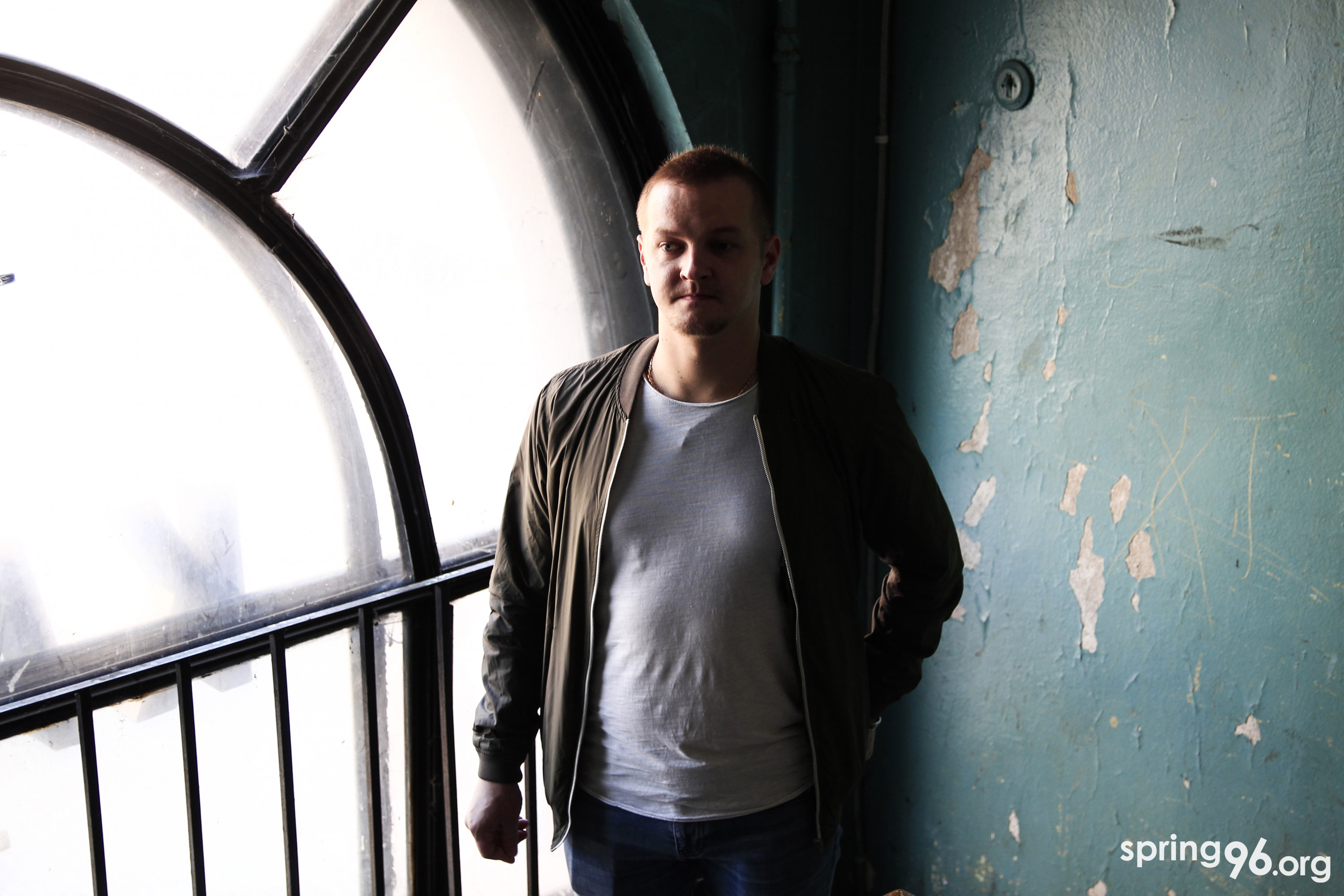
A bartender talks about his 3-day arrest. Survivor stories
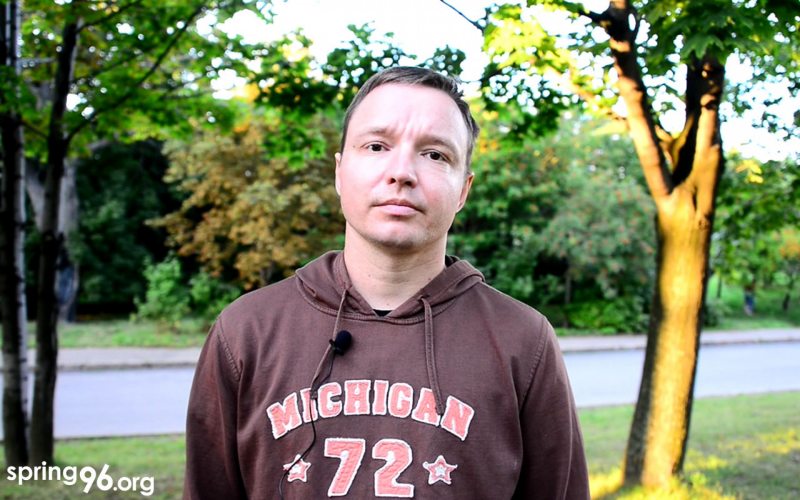
"A riot policeman sat on me in the police van and exclaimed: 'Look at my nice chair!'" Survivor stories
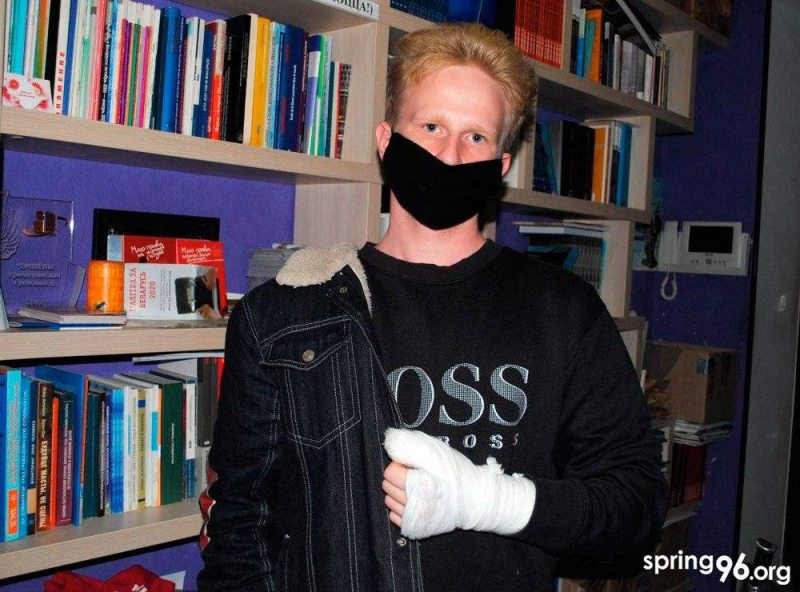
"They threw my skateboard away and told me I feigned a broken arm." Survivor stories
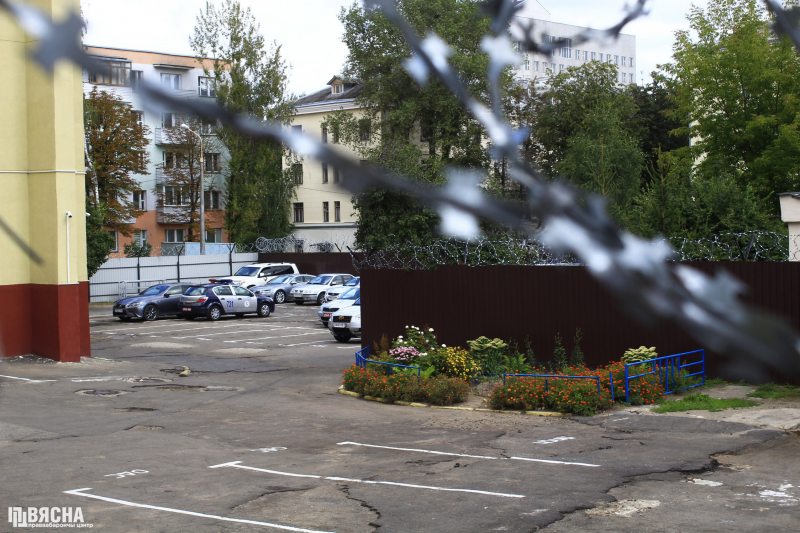
"I had to take down my pants and stand in my underwear in the middle of the hall." Survivor stories
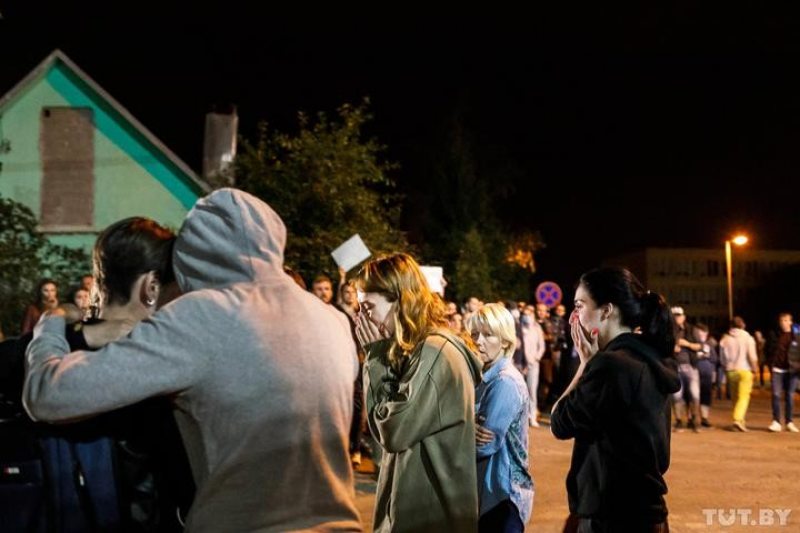
"Riot policeman took another baton and said: 'I wanted to be a drummer all my life.'" Survivor stories
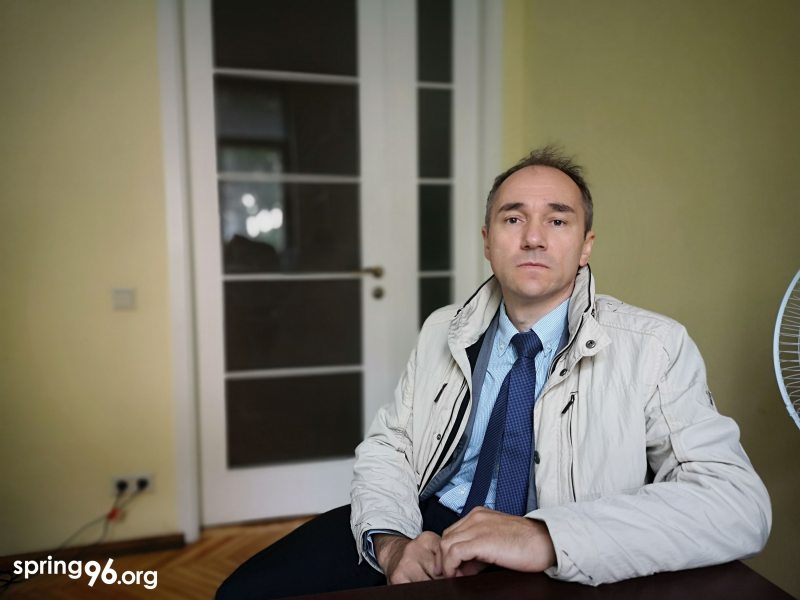
"They broke my ribs and found me guilty." Survivor stories
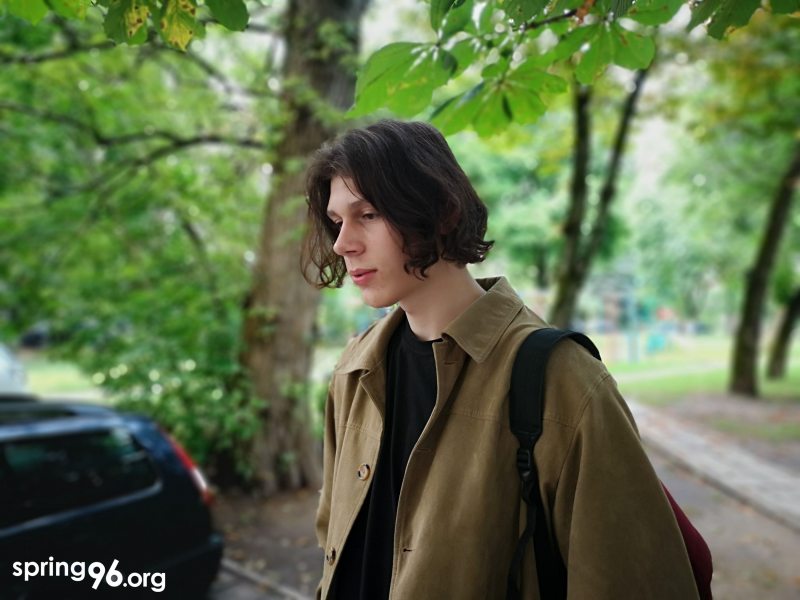
"When they looked at my ID, the beating became softer." Survivor stories
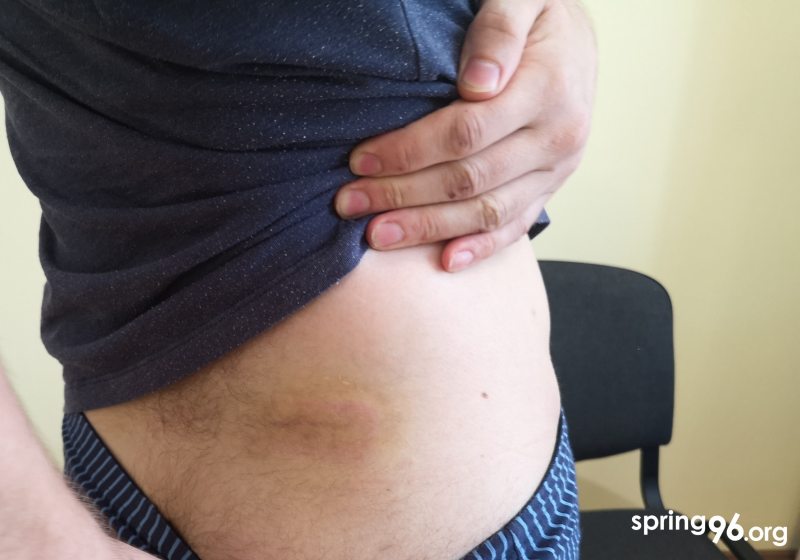
Rape threats and "shared responsibility". Survivor stories
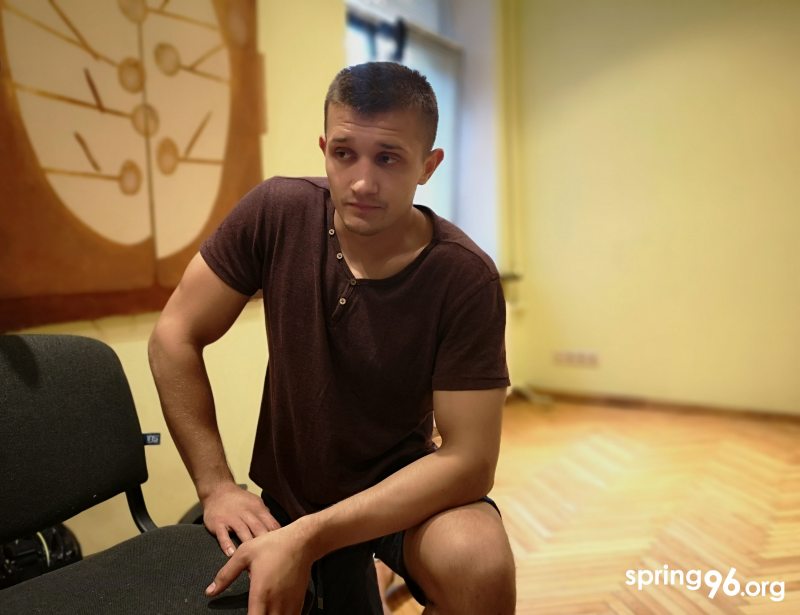
"You have thrown Molotovs!" they said and hit us with a Taser." Survivor stories
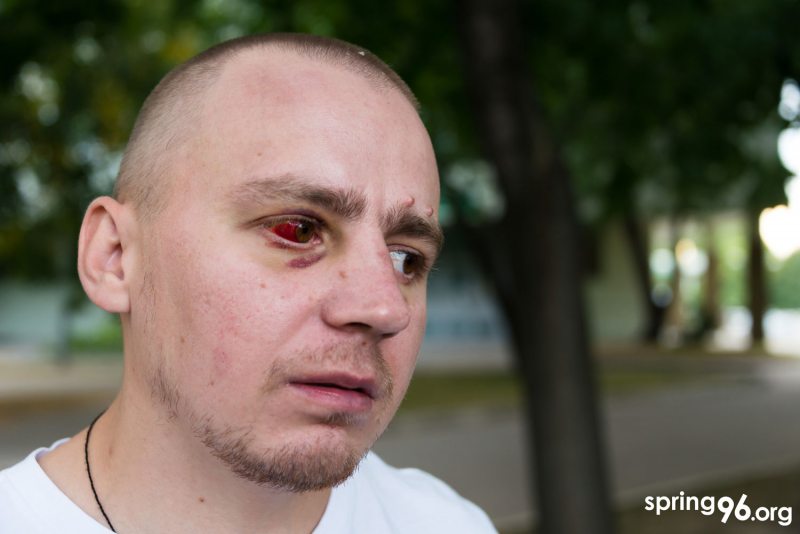
"They started beating me again and said: 'This is a refill for you!'" Survivor stories
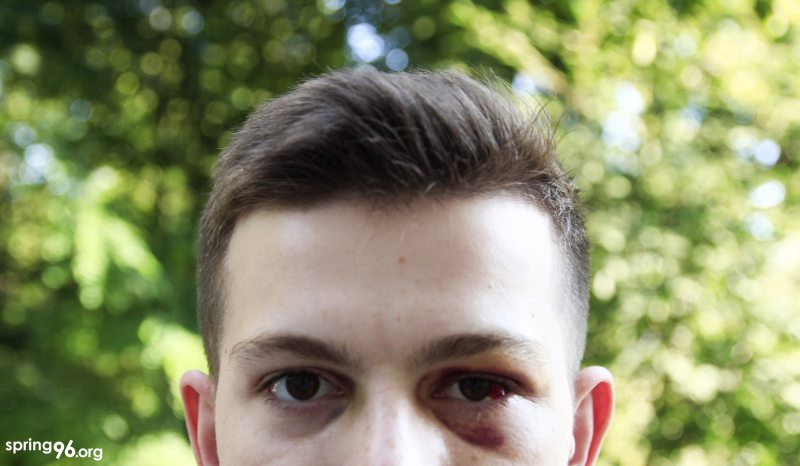
"A paramedic came and started beating people." Survivor stories
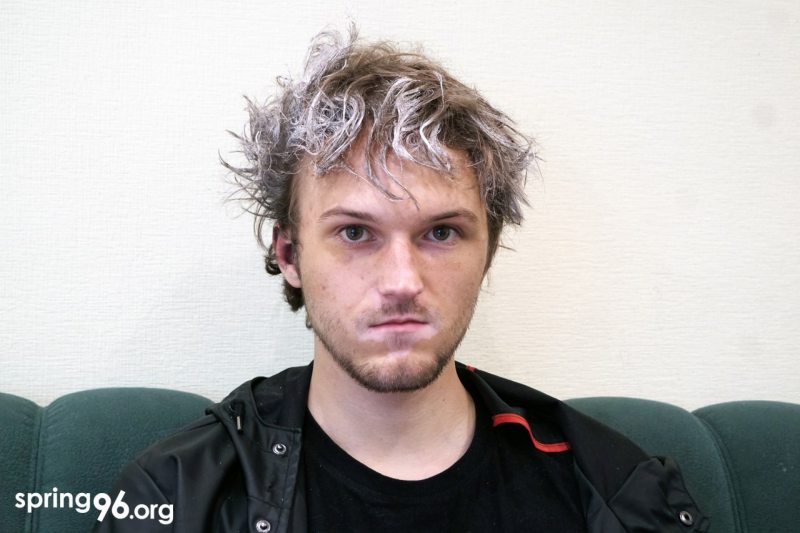
"White paint was poured on my head. It was like a sign to beat me harder." Survivor stories
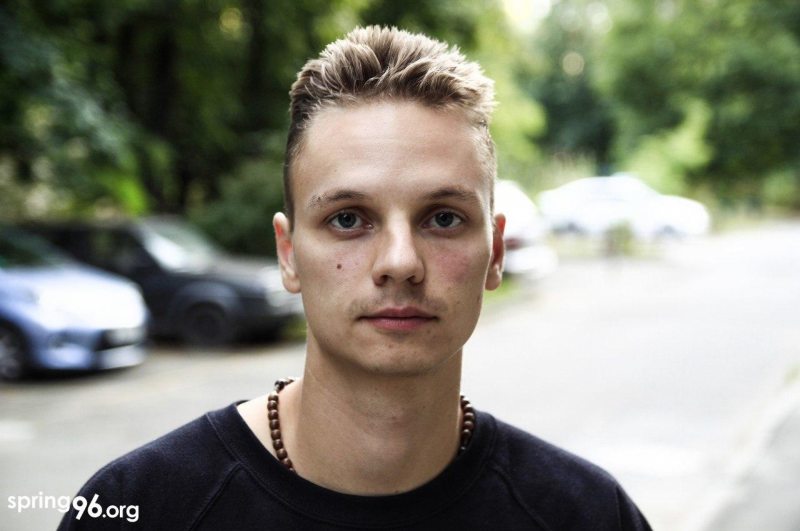
"One of them beats you and the other aims at you with a machine gun." Survivor stories
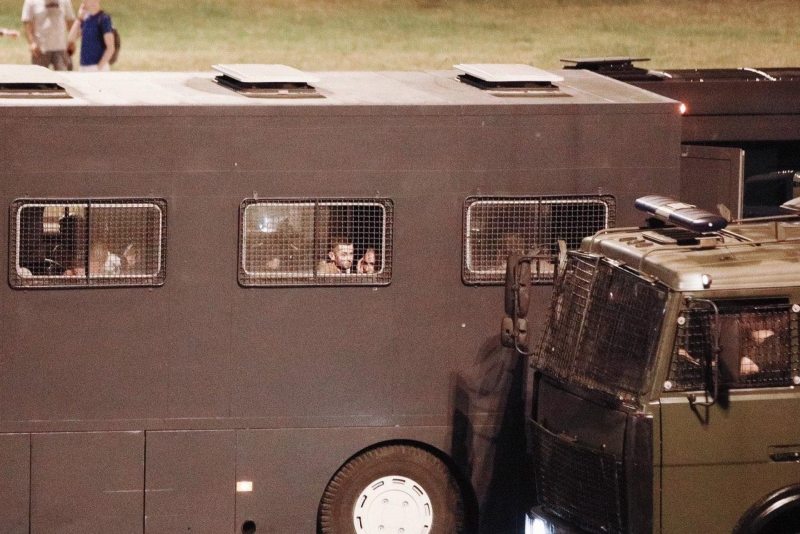
"They took away my bra with a breast prosthesis." Survivor stories
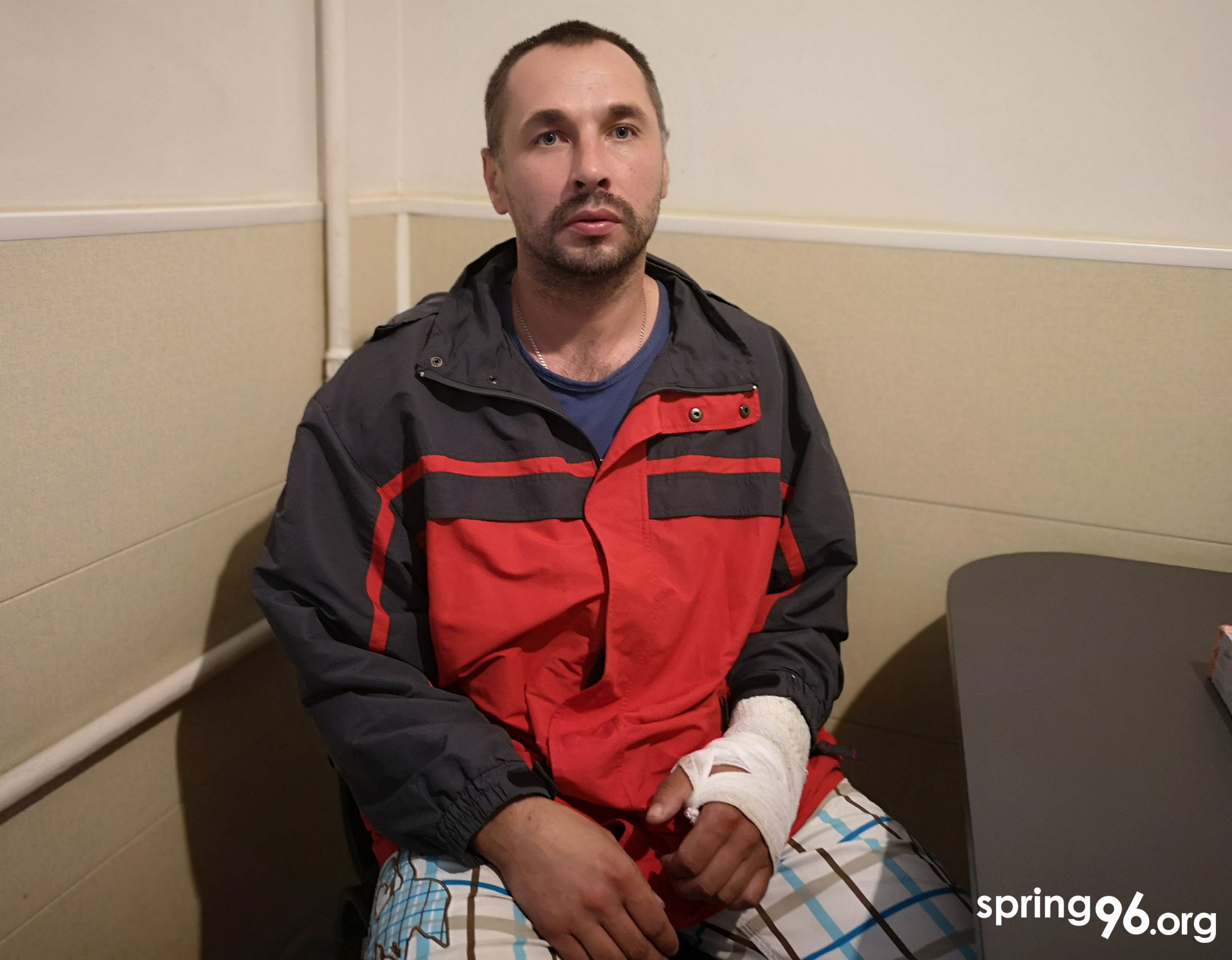
"Road police officers broke my arm during detention." Survivor stories
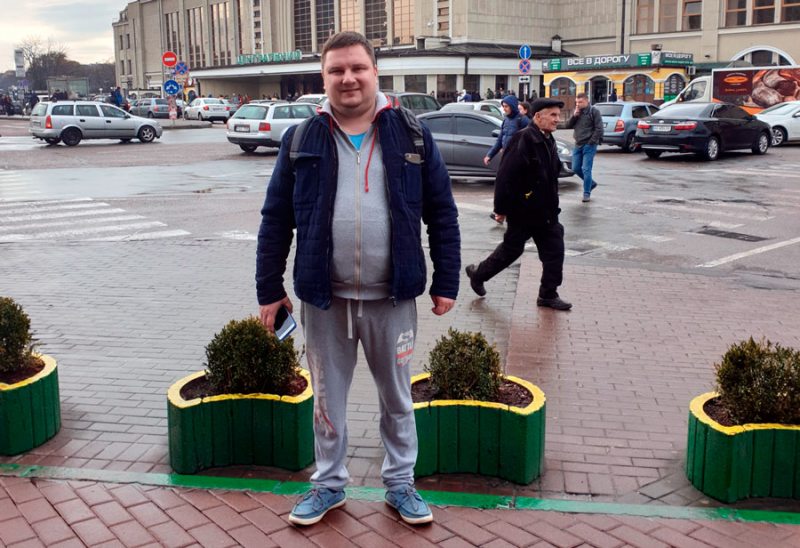
"I was lucky to be a journalist and to have my kidneys thrashed previously." Survivor stories
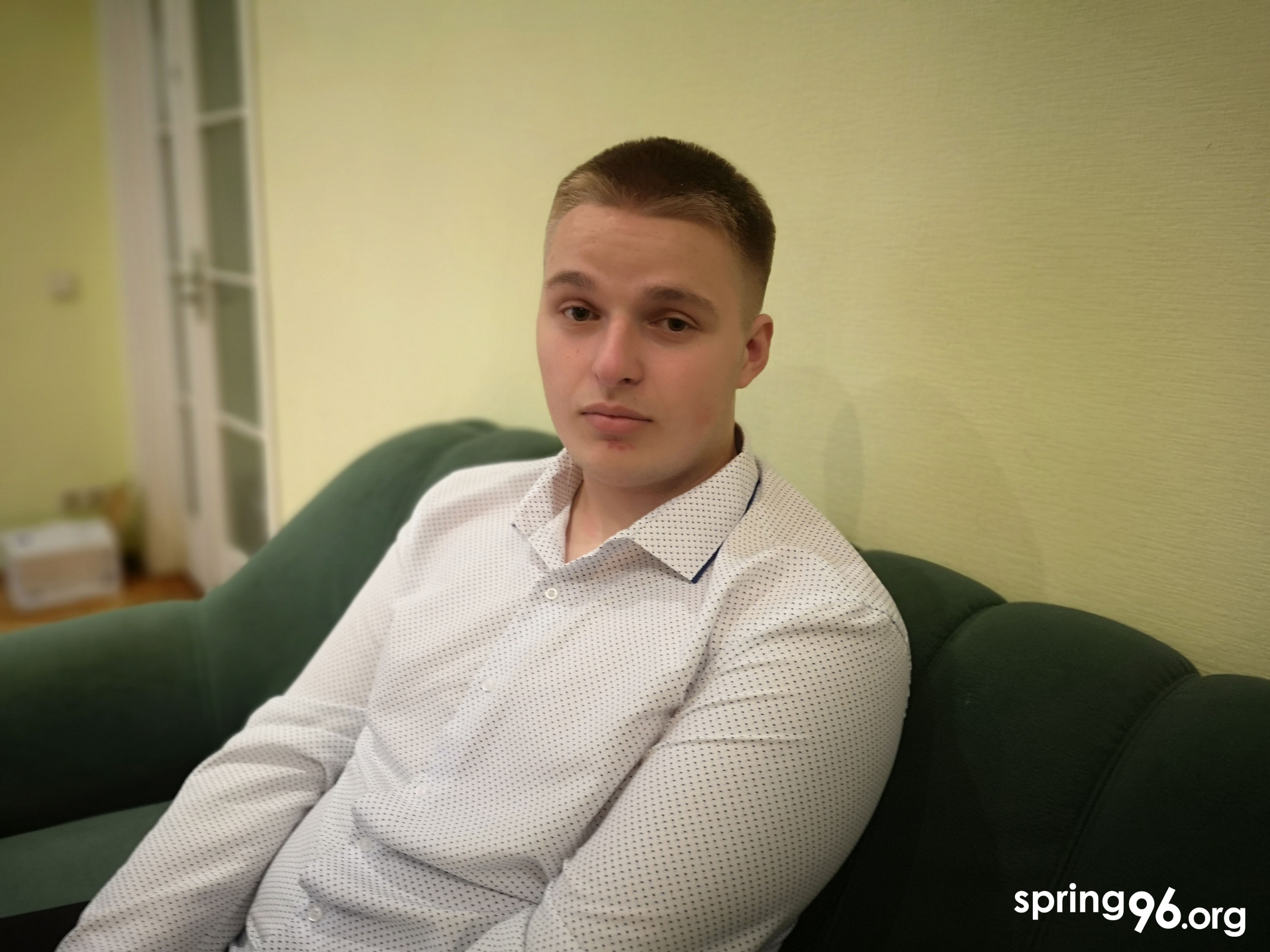
“We will shoot you and you will never be found.” Survivor stories
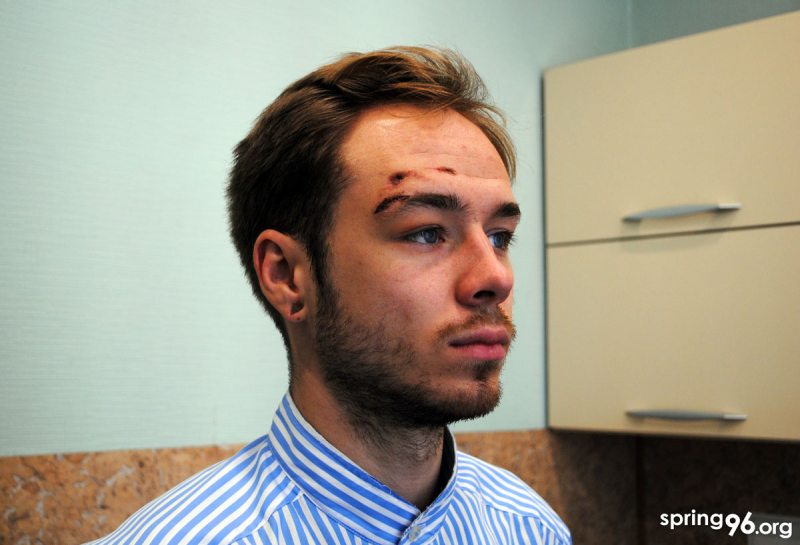
“We were trampled in the police bus.” Survivor stories
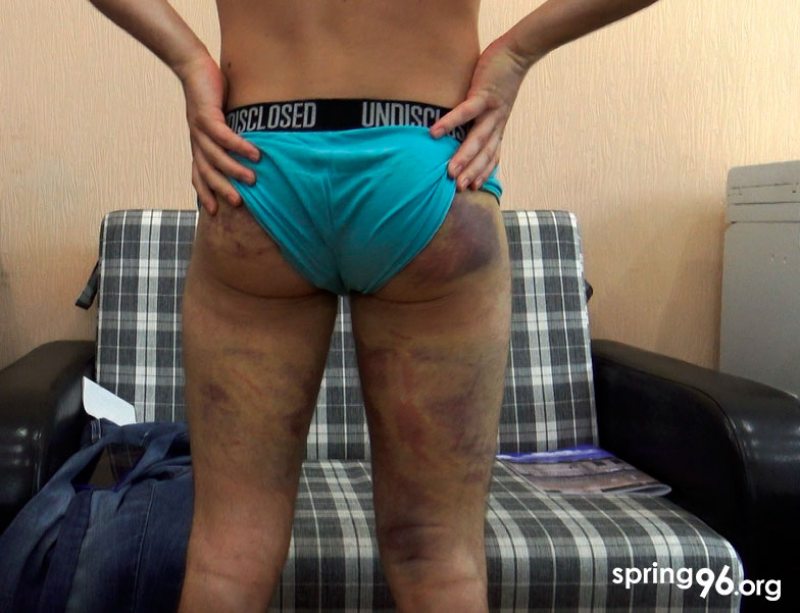
“Now we’ll show you how to s..t your pants." Survivor stories
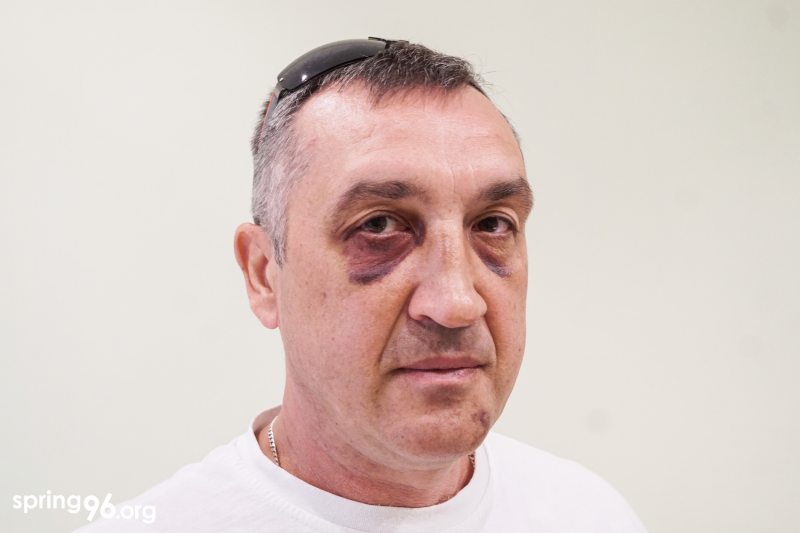
“So you are for Tsikhanouskaya?” Survivor stories
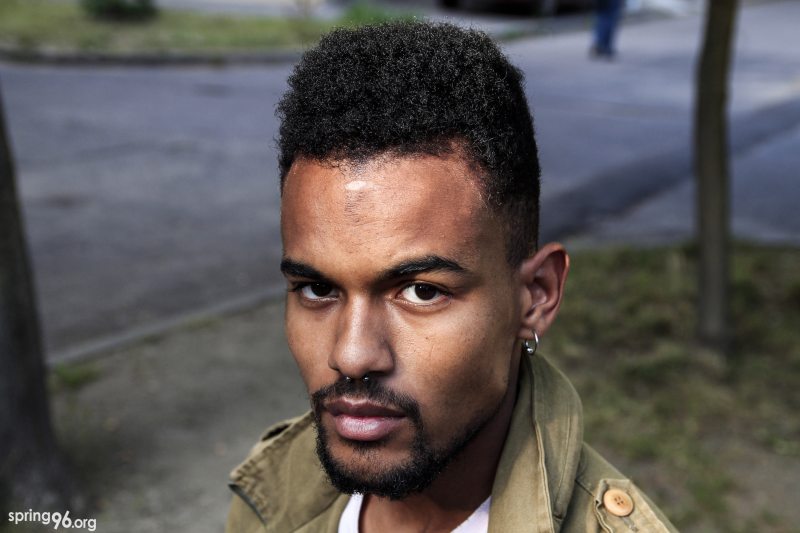
"Officers abused me all the time because I’m black." Survivor stories
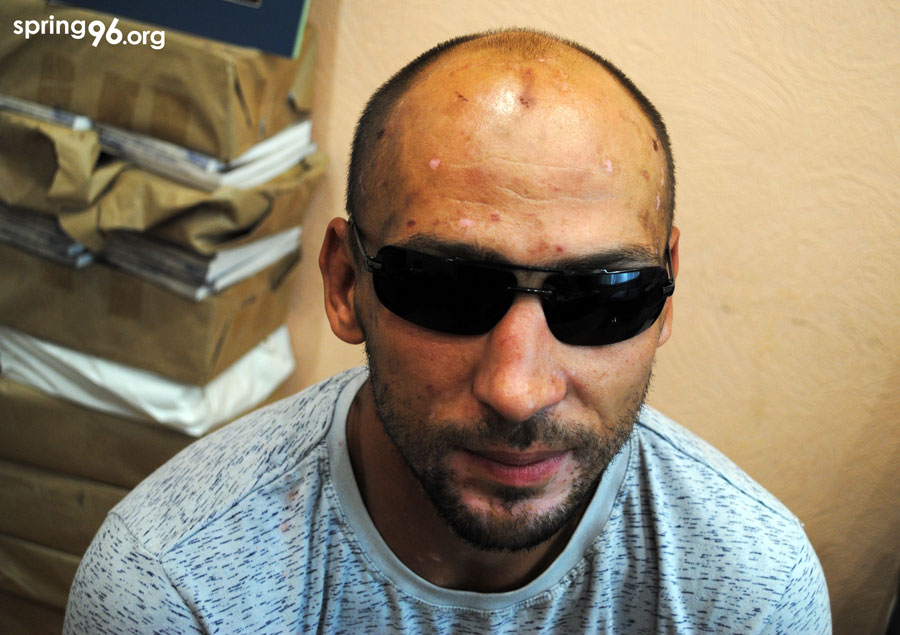
“They kicked me in the head with their police boots.” Survivor stories
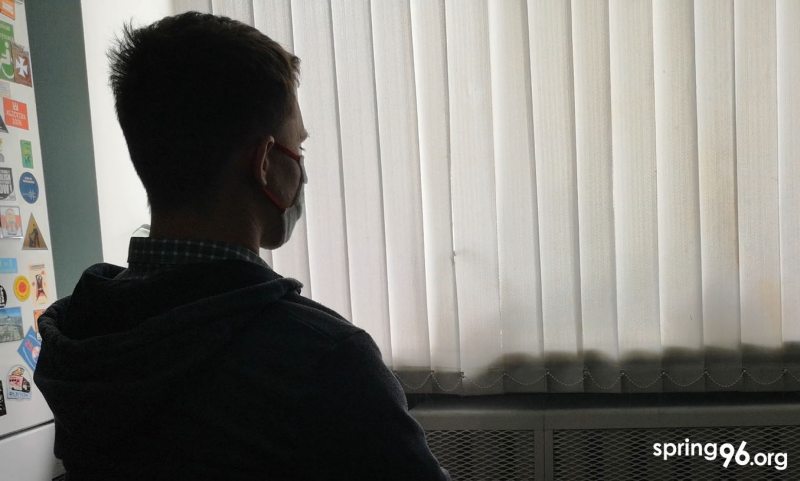
“People were screaming every night.” Survivor stories

















